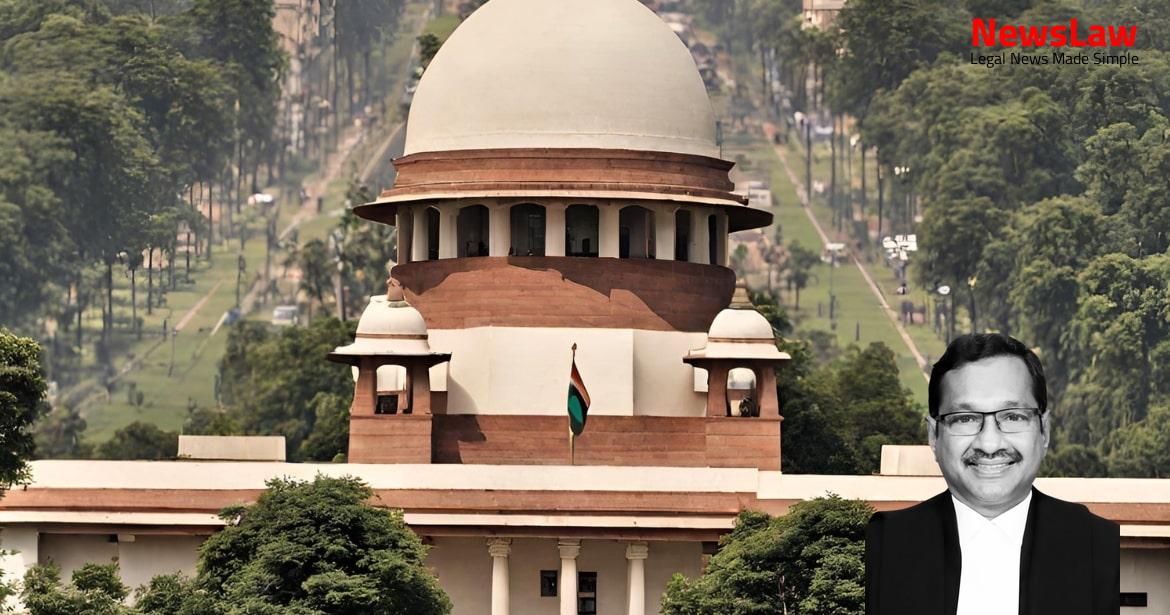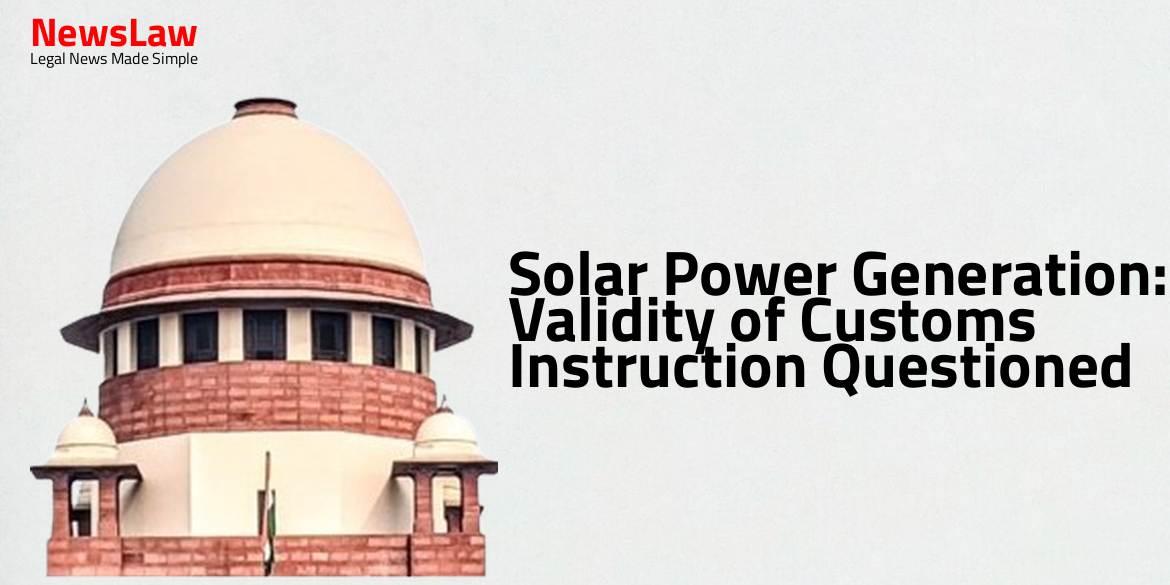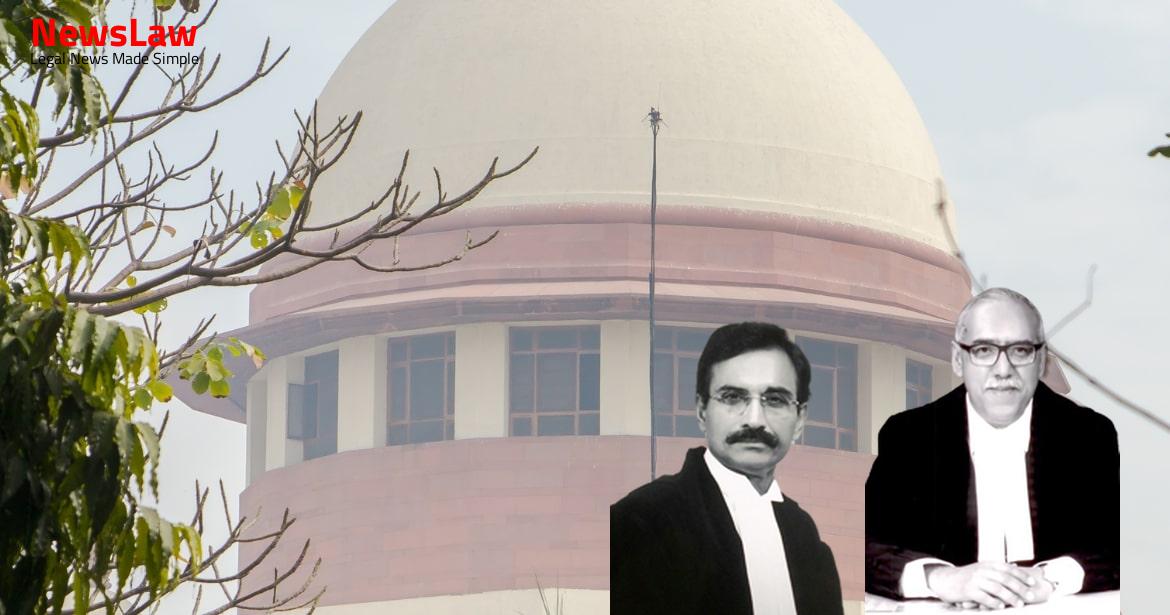In a significant ruling by the Supreme Court of India, the case of State of Telangana vs. Environmental Conservation Society addressed crucial issues concerning environmental protection and forest conservation. The petitioners, the Environmental Conservation Society, sought redressal for violations of forest laws by the State. This judgement sets a precedent for upholding the principles of sustainable development and environmental equity.
Analysis
- Order XLVII Rule 1 of the CPC, 1908 outlines the three scenarios in which a court can exercise the power of review.
- The term ‘environment’ should be interpreted broadly to encompass both animate and inanimate aspects.
- Section 114 of the CPC 1908 delineates the circumstances under which a review can be filed.
- Review petitions cannot be used to reevaluate evidence and come to a different conclusion.
- Important matters or evidence presented in a review must have been available at the time the decree was passed.
- The power of review is to be seen as an exception, subject to the stipulations of the provision.
- The expression ‘for any other sufficient reason’ under Order XLVII Rule 1 should be understood in conjunction with the preceding categories.
- The completion of the process under Section 15 of the A.P. Forest Act can change the nature of the land to a reserved forest.
- The power of review is not akin to appellate powers and cannot be used to correct errors on merits.
- The forest plays a crucial role in environmental protection and combating pollution.
- The exercise of review must be grounded in specific reasons and cannot be a disguised appeal.
- The scope of review should align with the constitutional principles of equality and environmental preservation.
- Review petitions have a limited purpose and cannot be transformed into appeals.
- The power of review should be exercised judiciously and sparingly, avoiding a re-hearing of the case.
- Article 48A and Article 51A(g) of the Constitution of India impose a mandate on the State and a duty upon citizens to protect and improve the natural environment, including forests.
- The power of review under Order 47 Rule 1 of the CPC is limited to specific grounds mentioned in the rule.
- An error apparent on the face of the record is a requirement for judicial review under Order 47 Rule 1 of the CPC.
- The power of review cannot be used as a means to re-hear and correct an erroneous decision.
- Environmental equity involves a balanced distribution of environmental risks and protections, emphasizing sustainable development principles.
- The court’s power of review is not equivalent to its powers as an appellate court.
- A review proceeding is more restricted than an original hearing, allowing only for review on specific grounds.
- The protection and improvement of the environment and forests in India are fundamental duties of every citizen under Article 51A(g) of the Constitution.
- The courts must consider Article 48A and Article 51A in light of Article 21 of the Constitution when dealing with environmental issues.
- The statutory and constitutional message emphasizes the importance of safeguarding the environment and forests.
- The Madras Act of 1882 was enacted to enable the Government to carry out effective forest conservation in the Presidency.
- The Act aimed at constituting important forests as State Reserves, clearing them of private rights, or defining those rights to prevent future encroachments.
- Provisions were made for the protection of reserved forests and acquisition of land under the Land Acquisition Act, 1894.
- The AP Forest Act defines various categories of forest officers, excluding Forest Settlement Officers.
- The Forest Settlement Officer is appointed from the Revenue Department not below the rank of a Revenue Divisional Officer.
- The Act specifies the powers of the Forest Settlement Officer in conducting inquiries and making decisions on objections and claims.
- Appeals from the orders of the Forest Settlement Officer can be made to the District Court.
- The Act lays down procedures for notification, declaration, and extinguishment of rights in reserved forests.
- The review of judgments under the AP Forest Act is governed by specific provisions, considering new evidence, mistakes, errors on record, or other sufficient reasons.
- The legislative history shows a progression in limiting the scope of review, with a conscious inclusion of restricting factors.
Also Read: Judicial Review in Recruitment Processes
Case Title: THE STATE OF TELANGANA Vs. MOHD. ABDUL QASIM (DIED) PER LRS. (2024 INSC 310)
Case Number: C.A. No.-005001-005001 / 2024



